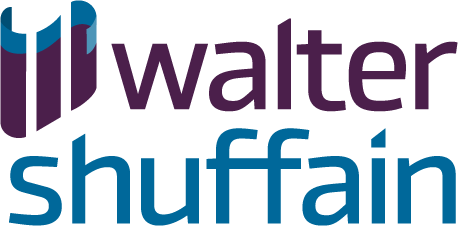Build Back Better is one of two pieces of legislation that form the centerpiece of President Biden’s domestic agenda. The first piece — the Infrastructure Investment and Jobs Act — was signed into law in November 2021. Build Back Better (BBB) focuses on a list of social policies and programs, ranging from health care to education to housing to climate. While the legislation remains stuck in debates, it’s worth noting how it could impact business owners whether it’s passed in part or parcel.
Corporate tax rates
While corporate tax rates would stay the same under BBB, the proposal includes a 15% minimum tax on book income for corporations reporting more than $1 billion in profits. For corporations with foreign parents, the minimum tax would apply to profits of more than $100 million.
The legislation would also impose a 1% excise tax on the fair market value of any publicly traded U.S. corporation’s stock that the corporation repurchases during the year.
BBB would also change the Foreign-Derived Intangible Income (FDII) deduction and Global Intangible Low-Taxed Income (GILTI) regime, increasing the taxes paid by most, if not all, U.S. multinational corporations.
Applying the Net Investment Income Tax to Trade or Business Income
The net investment income tax (NIIT) levies a 3.8% surtax on net investment income derived from interest, dividends, capital gains, and income from passive activities. NIIT applies when a taxpayer’s modified adjusted gross income (AGI) exceeds a threshold of $200,000 for single filers or $250,000 for married couples filing jointly.
Currently, trade or business income earned by pass-through business owners who materially participate in the business is not subject to NIIT. BBB proposes eliminating that exception for taxpayers with modified AGI greater than $400,000 ($500,000 if married filing jointly).
Limitations on interest expense deductions
The Tax Cuts and Jobs Act of 2017 limited the amount of interest a business can deduct to interest income plus 30% of its adjusted taxable income for the year. The BBB would further limit interest deductions for U.S. members of multinational groups that issue consolidated financial statements. The draft legislation describes the limitation as an “allowable percentage” of 110% of the corporation’s net interest expense.
Paid Family, Medical Leave Requirements
The U.S. is the only industrialized country without federally mandated paid parental leave, but BBB seeks to change that. The legislation guarantees four weeks of paid leave to all workers who are:
• New parents,
• Dealing with a serious medical condition of their own, or
• Caring for a loved one with a serious medical issue.
Employers would not have to foot the bill for that paid leave. States with an existing paid family medical leave mandate equal to or better than the federal benefit would be reimbursed for what it would have cost to cover workers in the federal program.
Employers that voluntarily offer paid leave equal to or better than the federal benefit would be reimbursed for the lesser of:
• 90% of the national average cost of paid leave benefits, or
• 90% of their insurance premium
All other public and private-sector employees would be covered by a public program run by the Social Security Administration.
Investing in small business
Build Back Better also allocates about $3.385 billion to support small businesses by improving access to capital, including:
• Additional funding for SBA 7(a) loans
• Reduced or waived fees for new SBA 7(a) and 504 loan borrowers with loans of $2 million or less
• Additional investments into the Small Business Investment Company (SIBC) program
• Establishing a national network of “uplift incubators” to spur economic development in underrepresented communities
• Additional funding for cash grants to growth accelerators assisting small businesses focused on technology
• Providing funding for grants to help minority-owned businesses launch and expand operations
Although the House passed a version of the Build Back Better bill in November 2021, negotiations over the bill stalled in the Senate, so none of the above proposals have been turned into law as of this publication.
At this point, it’s impossible to say which proposals will survive and in what form, but it is worth keeping an eye on as key portions, like workforce support, are expected to eventually pass. If you have questions in the meantime, please reach out to your tax advisor.
